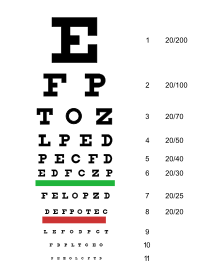December 28th, 2011 by Berci in True Stories
No Comments »

I was just making preparations for the top 2011 posts I’m planning to write in the upcoming days when I bumped into this cute story about a diabetic kid who felt ashamed to wear the insulin pump so his parents got insulin pump tattoos.
Some parents get tattoos of their child’s name, but Philippe Aumond and Camille Boivin went one better.
In a show of solidarity, they each have an image of an insulin pump tattooed on their abdomens, declaring that they are “forever linked” to their son Jacob.
“It is a great thing for him, and we were thrilled just to see his smile when he saw those pumps. It made our day, that’s for sure,” said Boivin, 36, from the family’s home in La Sarre, Que.

*This blog post was originally published at ScienceRoll*
December 22nd, 2011 by KerriSparling in Opinion
No Comments »

A few years ago, I connected with Kyrra Richards, creator of Myabetic, to highlight the completely adorable “Lovebug” meter case. She and I have talked a few times since, and I had the opportunity to reconnect with her at the Diabetes Sisters conference in San Diego back in October.
It was at that conference that I was able to check out her new project, Champ, in person. And it’s totally cool, in that “hey, let’s make my glucose meter case something that doesn’t suck” sort of way. I love it.
I asked Kyrra what the inspiration for Champ was, and she had this to say: Read more »
*This blog post was originally published at Six Until Me.*
December 20th, 2011 by Dr. Val Jones in Health Tips
No Comments »
 Most people assume that their eyes are healthy if their vision is stable, but this is not always the case. Eye doctors look for many different potential diseases and conditions during a comprehensive eye exam, and if you (or your children or loved ones) haven’t had one recently then maybe it’s time to make it a New Year’s resolution for 2012?
Most people assume that their eyes are healthy if their vision is stable, but this is not always the case. Eye doctors look for many different potential diseases and conditions during a comprehensive eye exam, and if you (or your children or loved ones) haven’t had one recently then maybe it’s time to make it a New Year’s resolution for 2012?
One CDC survey suggests that as many as 34.6% of adults over the age of 40 (with moderate to severe visual impairment) believe that they don’t need regular eye exams. This popular misconception may lead to missed diagnoses. Eye doctors look for signs of diabetes, high blood pressure, high cholesterol, glaucoma, multiple sclerosis, brain tumors, cataracts, macular degeneration, retinal tears, allergies and infections (among other things) each time they conduct a comprehensive eye exam. The exam offers a lot more than a simple vision check. And this is particularly important for children.
In a recent interview with the president of the American Optometric Association (AOA), Dr. Dori Carlson, I learned the surprising statistic that about 1 in 4 school age children have an undetected or undiagnosed vision problem. School vision screenings, while helpful, still miss more than 75% of these problems. And for those kids who are discovered to have a vision problem during a school screening, upwards of 40% receive no follow up after the diagnosis.
The eyes are more than a “window to the soul” but a window to general physical health. And the good news is that exams are relatively inexpensive and painless – so why not resolve to make them part of your yearly health maintenance routine, starting in 2012? Let’s make 2012 a year for healthy vision!
December 16th, 2011 by KerriSparling in Opinion
No Comments »

 The flight from Boston to London took just over six hours. The time change was five hours ahead of Boston, so when we landed at 6 pm, I was only ready for lunch. The trek from London to Dubai was almost seven hours, pushing the clock ahead a full nine hours from Boston, making my head hurt because how was it Wednesday morning when I was still on Tuesday’s timetable?
The flight from Boston to London took just over six hours. The time change was five hours ahead of Boston, so when we landed at 6 pm, I was only ready for lunch. The trek from London to Dubai was almost seven hours, pushing the clock ahead a full nine hours from Boston, making my head hurt because how was it Wednesday morning when I was still on Tuesday’s timetable?
(I wrote about the impact of changing time zones for an Animas column last month, but I seriously had no idea what I was in for when I decided to take the trip to Dubai.)
That first day there, the Wednesday, everyone gave me the same advice: “Don’t go to sleep.” (It felt like A Nightmare on Elm Street.) “Work through the exhaustion and just go to bed on Wednesday night on Dubai time, and you should be good the next day.”
For the first few hours after landing, Read more »
*This blog post was originally published at Six Until Me.*
December 14th, 2011 by PJSkerrett in Research
No Comments »

It’s hard to imagine what it was like to live with type 1 diabetes 80 years ago. Insulin was a brand new and relatively untested drug, the only way to check blood sugar levels was by testing boiled urine, syringes had to be sterilized, and needles sharpened by hand. Couple those challenges with the common complications of diabetes—heart disease, kidney failure, nerve damage, blindness, and more—and life expectancy for someone with type 1 diabetes wasn’t that long.
Spencer M. Wallace, Jr., was diagnosed with type 1 diabetes in 1931, at age 7. He’s now an active 87-year-old who plays golf several times a week. He isn’t alone as a long-term survivor. Since 1970, almost 3,500 men and women who have lived with the disease for a half century have been recognized by the Joslin Diabetes Center in Boston with bronze 50-year medals. Forty-five of them Read more »
*This blog post was originally published at Harvard Health Blog*





 Most people assume that their eyes are healthy if their vision is stable, but this is not always the case. Eye doctors look for many different potential diseases and conditions during a comprehensive eye exam, and if you (or your children or loved ones) haven’t had one recently then maybe it’s time to make it a New Year’s resolution for 2012?
Most people assume that their eyes are healthy if their vision is stable, but this is not always the case. Eye doctors look for many different potential diseases and conditions during a comprehensive eye exam, and if you (or your children or loved ones) haven’t had one recently then maybe it’s time to make it a New Year’s resolution for 2012? The flight from Boston to London took just over six hours. The time change was five hours ahead of Boston, so when we landed at 6 pm, I was only ready for lunch. The trek from London to Dubai was almost seven hours, pushing the clock ahead a full nine hours from Boston, making my head hurt because how was it Wednesday morning when I was still on Tuesday’s timetable?
The flight from Boston to London took just over six hours. The time change was five hours ahead of Boston, so when we landed at 6 pm, I was only ready for lunch. The trek from London to Dubai was almost seven hours, pushing the clock ahead a full nine hours from Boston, making my head hurt because how was it Wednesday morning when I was still on Tuesday’s timetable?










